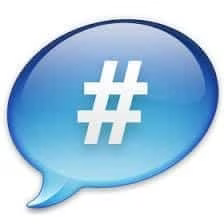A Few Thoughts on Social Networking Tools

Ok, just a few random thoughts; I’ll do a real post later on this once things are fleshed out more.
What are the variables among social networking tools?
I like to abstract everything before talking about implementation. What are the similarities between Twitter and FriendFeed and Facebook? What about them are the same, and what are different?
As many many know, I’ve been on a design kick for like…a couple of years now. It’s why the iPhone is dominating, and it’s likely why Facebook is as well. They just feel good.
That being said, you have to have some minimums before you can get there.
photo sharing
video sharing
link sharing
direct messaging
micro-blogging (status)
full articles/essays???
incorporation of other network activity
search (finding lost/new friends)
games/fun
what else?
…and most importantly…the EASE and FUN involved in doing these things.
So here’s the thing. Twitter is an input mostly. It’s something of a reader as well, i.e. you go there to read what people are saying of course, but at some point that’s going to be part of a true aggregator app. Why would you use ANY app that only reads one type of input?
Nobody will, unless that’s the only place to get it.
As the inputs continue to increase, and the need to consolidate increases, what we’re going to have is a battle of the aggregators. The big boy right now is Facebook. Why? It’s both an input system AND an aggregator, and it’s a very nice interface.
FriendFeed is the closest thing to Facebook out of the big players (except MySpace, but I don’t talk about them), but it isn’t as widespread or as approachable/intuitive.
So is the question really: when will Twitter become an aggregator? Can services like Twitter survive without becoming a central hub? I don’t think so. I don’t think people are going to have time to have multiple central hubs, and you can’t do with Twitter what you can do with Facebook, i.e. run your entire life from it.
So imagine a matrix of functionality on a giant, wall-sized whiteboard. Features on the x axis and services on the y axis. Every single service needs to be asking themselves what they have that others don’t, and then calculating how long before they get it, and what they’re going to do about it.
Right now I’m leaning toward Facebook as the winner in this game for a long time, with FriendFeed being a tech-elite supplement to it. But ultimately FriendFeed needs to be asking themselves, "Why can’t Facebook do what I’m doing?"
Endgame
Regardless of how we get there, the endgame is clear. Every service will be an aggregator and an input system, and it will work by finding and/or helping you find all of your friends (and people it thinks you SHOULD be friends with).
From there it’ll go get every service they are a part of, and integrate those inputs into your view of that person. Forget services–at this point you’re just tracking people and what they’re doing in their lives.
This is what FriendFeed is doing. They got there first, and that’s why I’m excited about them. But it’s only a matter of time before Facebook fixes their URL structure and starts doing this same exact thing.
The services will become abstracted. It’ll just be life events that you get when you use your FB or FF interface (which will be mobile or desktop or whatever).
So here are the features:
Find all your friends (and recommend more later)
Find everything they use online (FB, FF, Twitter, Blogs, Forums, Flikr, etc.)
Collect all that stuff together into a single "lifestream" for that person, and stream it into you in realtime.
Ultimately this allows one thing: people anywhere to connect into the raw experiences of those they care about, e.g. visual, auditory, textual, emotional, etc.
It’s just a race to get there, and right now the two big ones are Facebook, Twitter, and FriendFeed. ::